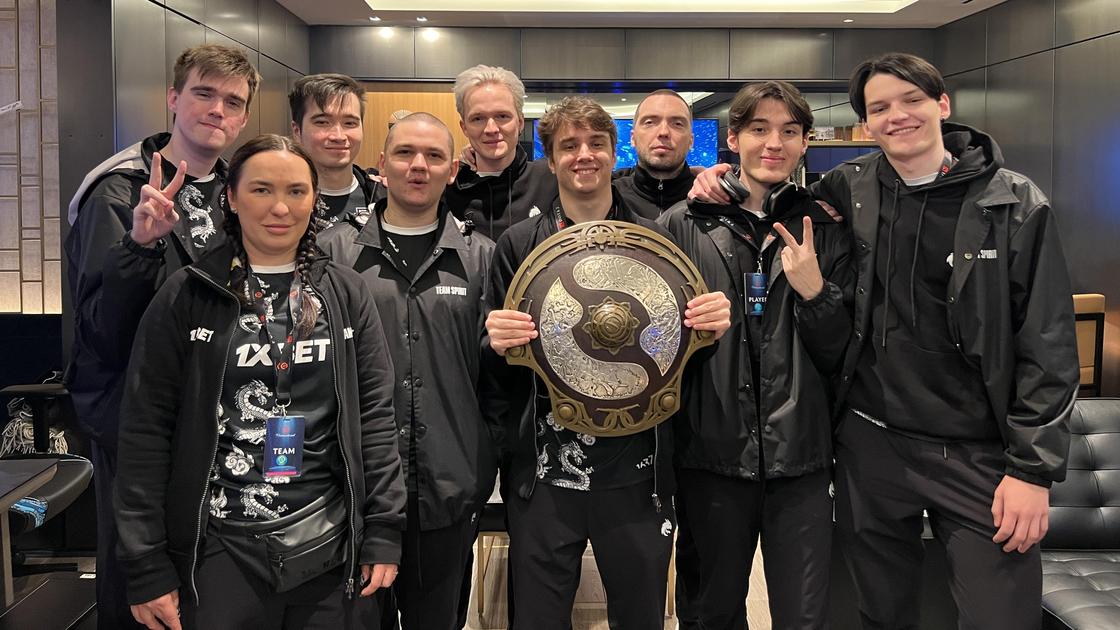The roar of The International 2025 (TI14) has subsided, but for Team Spirit, the introspection has just begun. After an unexpected early exit from Dota 2`s most coveted tournament, the team`s captain, Yaroslav “Miposhka” Naidenov, and coach, Airat “Silent” Gaziev, have offered a remarkably frank post-mortem. Their insights, shared in a recent vlog, paint a vivid picture of a team grappling with a confluence of internal strife, strategic miscalculations, and a significant dip in morale that collectively thwarted their championship ambitions.
The Unsettling Prelude: Preparation Under Duress
For a team that once stood atop the world, meticulous preparation is the bedrock of success. Miposhka pointed directly to the early challenges faced, particularly the disruptive need to integrate stand-ins during crucial practice sessions. “It slightly irritated me that we had to play with one player, then another, then yet another,” he confessed. This constant adaptation, he believes, directly impacted their ability to solidify hero pools and refine strategies, leading to an unstable foundation.
Silent, however, presented a more stoic viewpoint, categorizing the stand-in issue as a “minor inconvenience.” While acknowledging the unpleasantness, he stated, “I don`t think it significantly affected how we played.” This subtle divergence in perspective hints at underlying friction, where even seemingly minor external factors could amplify internal tensions within a high-pressure environment.
A Heavy Heart: The Morale Meltdown
Perhaps the most revealing aspect of their discussion concerned the team`s psychological state. Miposhka starkly contrasted their TI14 experience with their victorious run at Riyadh Masters 2025, noting, “The difference in morale was at least one and a half times.” Silent elaborated on this somber atmosphere, describing “gloomy faces” after losses and a pervasive feeling of being “drained” or “poisoned” upon arriving at the tournament venue. He candidly admitted, “There was no enthusiasm. It felt like everyone was here `through gritted teeth,` as if forced to play.”
This individual “heaviness” and collective lack of positive “vibes” prevented the team from igniting the competitive spark that fueled their past triumphs. While attempts were made to rekindle their spirit, the initial psychological slump proved persistent. As Silent somewhat ironically remarked, “We overcame it later, but we didn`t play any better for it, however silly that sounds.”
Strategic Sclerosis: The Roshan and Tormentor Blunder
Beyond the emotional landscape, tactical shortcomings proved devastating. A recurring and particularly frustrating theme was the team`s chronic inability to execute agreed-upon strategies, especially concerning critical map objectives like Roshan and Tormentor. “We couldn`t come to a common understanding of how to play,” Miposhka admitted, pinpointing a fundamental communication breakdown.
Silent offered a surprisingly vivid, if slightly self-deprecating, description of their in-game coordination: “If you noticed, in this tournament, we gave away almost all first Roshans and Tormentors. We just scatter across the map like cockroaches.” Despite pre-game discussions and plans for vision placement and coordinated pushes, the team repeatedly failed to align, consistently conceding vital gold, experience, and momentum. “Everyone still thinks about themselves,” Miposhka concluded, laying bare a severe lack of collective decision-making.
For a team once celebrated for its intricate strategic play and flawless execution, this “scurrying like cockroaches” imagery serves as a potent, albeit painful, admission of disarray at the highest competitive level. In Dota 2, where objective control dictates the pace of the game, such fundamental failures are simply unforgivable.
The Unpleasant Journey and an Uncertain Horizon
Team Spirit`s road to TI14 was also marred by logistical hurdles—a fragmented bootcamp schedule, a “full mess” of practice days, and “unpleasant travel.” These external stressors, combined with the internal discord, created a perfect storm for underperformance, culminating in their 9th-13th place finish after a decisive loss to Team Falcons. While the prize money of over $46,000 provides some financial relief, it`s a meager return for a team with championship aspirations.
Looking to the future, Miposhka offered a starkly uncertain outlook: “Everything is unclear for now. We`ll live and see. Stay tuned for news. There will be news.” Silent, understanding the collective disappointment, empathized with their fanbase: “It was quite painful to watch… we understand you. Thank you for cheering, but apparently, not this time.”
The candid introspection from Miposhka and Silent is a painful but essential step. It lays bare the complex interplay of preparation, morale, communication, and execution that defines success and failure at the pinnacle of esports. For Team Spirit, the immediate future involves more than just devising new drafts; it demands a profound rediscovery of their shared purpose and the collective spirit that once made them undisputed champions.

